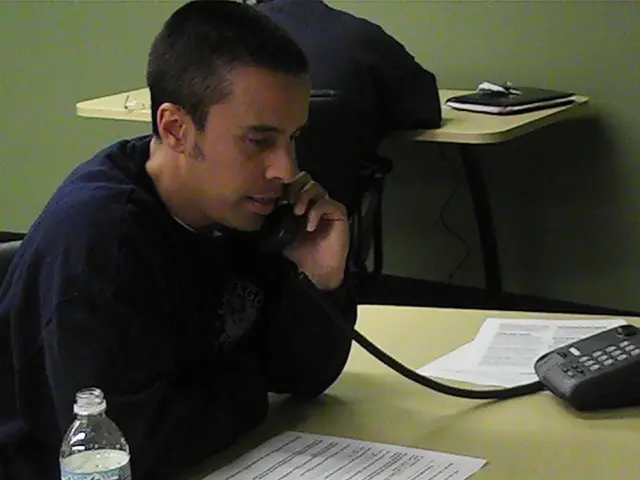Facebook Scam Offering Discounts on Local Transportation
In recent times, Facebook users worldwide have been targeted by a wave of phishing scams involving fraudulent public transportation pages. These pages, identified by the Spanish fact-checking organisation Maldita.es, are linked to websites hosted on only two IP addresses of a Russian provider. The scam aims to phish payment data from unsuspecting users.
Here's a comprehensive guide on how to protect yourself:
### How to Protect Yourself from Fake Ticket Scams on Facebook
1. **Verify the Source** - Purchase tickets only from official transportation providers or their verified reseller partners. - Look for the blue verification badge on Facebook pages to confirm authenticity. - Avoid clicking on suspicious links or ads posted by unofficial accounts or groups.
2. **Be Wary of Deals That Look Too Good to Be True** - Scammers often lure victims with heavily discounted tickets or exclusive offers. If it seems unusually cheap, proceed with caution.
3. **Check the Payment Method** - Avoid direct bank transfers, wire transfers, prepaid cards, or payment by gift cards. Use secure payment platforms (like PayPal) that offer buyer protection.
4. **Research Reviews and Community Feedback** - Search for reviews or complaints about the seller or Facebook group on independent forums or social media.
5. **Cross-Verify Ticket Validity** - If you receive a ticket via email or message, compare the ticket details with the official public transportation system or app. - Some countries or transit systems allow you to verify ticket serial numbers on their official websites.
6. **Be Cautious with Messages from Friends or Unknown Sellers** - Scammers sometimes hack accounts to send fake tickets or scams to friends. Confirm with your friend directly if they recommend or share ticket offers.
### What To Do If You Fall Victim to Phishing or a Ticket Scam
1. **Stop All Communication and Payments** - Cease any further contact with the scammer immediately.
2. **Report the Scam on Facebook** - Use Facebook’s reporting tools to report the fake page, post, or account. - Report the incident to Facebook Marketplace or any related platform where the scam happened.
3. **Alert Your Bank or Payment Provider** - If you paid via card or bank transfer, inform your bank or payment service immediately and request a chargeback or fraud investigation.
4. **Change Passwords and Secure Your Accounts** - If you provided login information or suspect your Facebook or email accounts were compromised, change passwords and enable two-factor authentication.
5. **Report to Local Authorities and Consumer Protection Agencies** - File a police report especially if you lost a significant amount of money. - Report to your country’s consumer protection or cybercrime authority.
6. **Use Online Resources for Assistance** - Check anti-fraud websites or public transportation authorities’ scams and fraud alerts for guidance.
7. **Warn Others** - Share your experience to help warn others in Facebook groups or community forums.
It is crucial to remember that these phishing sites do not send the data to the public transport operator or consortium whose name has been misused. The warning comes as these fraudulent pages are attempting to phish payment data from Facebook users. If you reside in Germany, specifically, be aware that there are 16 identified fraudulent public transportation pages on Facebook. These fraudulent pages are part of a global phishing wave affecting social networks.
In case of victimization, it is recommended to file a police report. In the event of losing a significant amount of money, report the incident to your local authorities and consumer protection agencies. Stay vigilant, verify sources, and take prompt action to protect yourself from these scams.
*Cybersecurity警護 : The warning emphasizes the importance of cybersecurity in protecting personal data, as these fraudulent pages are attempting to phish payment data from Facebook users.* General-news 一般新聞 : Recent phishing scams involving fraudulent public transportation pages on Facebook have raised concerns about general-news and crime-and-justice.







